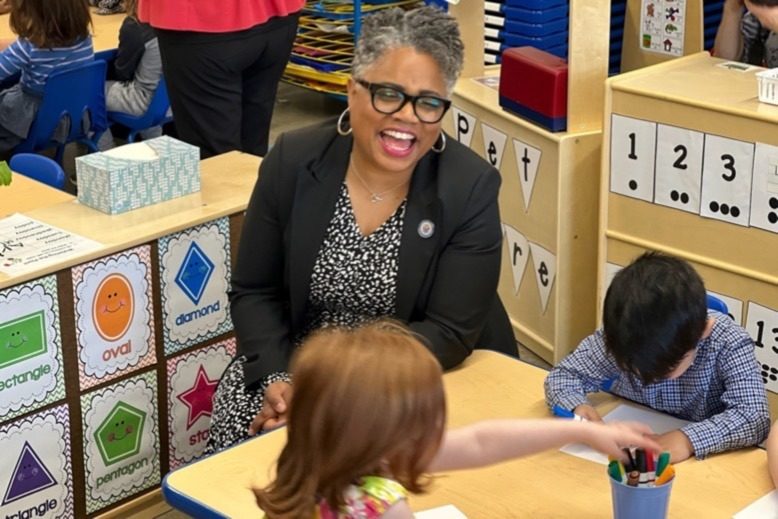
Acting education commissioner Angelica Allen-McMillan welcomes the opportunity to increase educational equity for New Jersey’s 1.4 million students. She faces multiple challenges as the state’s commissioner, including educating students during a pandemic, keeping children and educators safe, teacher shortages, mental-health issues and aging school buildings.
Allen-McMillan has spent 25 years in public education. A Cedar Grove resident and a parent of three, she has been a teacher, served on a school board, launched a charter school, served as a principal and an assistant superintendent, and was interim executive county superintendent for Morris County. Her permanent appointment awaits state Senate confirmation.
What are some of the biggest challenges you face as commissioner?
I’m focusing on continuing to have students and educators in safe buildings. We’re also ensuring the physical, social and emotional well-being of our students to promote optimal learning. We’ve been thrown into a virtual teaching reality without a lot of warning, so we need to learn how to take the best of technology and reacclimate ourselves to brick-and-mortar learning. And we’re not just capturing what was missed; we’re focusing on learning acceleration, and on big ideas. We’re moving students forward, using technology and training to make connections meaningful for them and to sustain their learning. Universal preschool is one of the governor’s hallmark positions. We believe that education for every 3- and 4-year-old in the state will pay dividends for years to come.
Can you talk about learning loss for students during the pandemic and what is being done on the state level to alleviate this? Is there a long-term plan?
We term it disrupted learning. We’re engaging students differently now. We’ve been able to use funds from the federal government to support initiatives to help with this, and 90 percent of these funds have been allocated to be shared with our school districts.
Our goal was initially to get devices into the hands of children, but now we’re looking beyond that. What is the research telling us? We’re dividing funding and leveraging more toward STEM, and we’re taking a portion for literacy and visual and performing arts. We know that creative performance leads to growth. We’re also directing $30 million for mental health support.
The funding also allows for one-on-one intensive tutoring, after-school programs and summer learning…. It will take time for districts to find their footing again now that they’re back in their buildings.
What is being done to address the mental health issues that students have faced in the past two years?
We’re improving our ability to provide support to schools. If there’s a need, we want them to come to us for resources. We have a new mental health staff member working with our districts. In our county offices, we have a county special education specialist as well. Our goal is to build on what we know works and to train and advance initiatives that are moving forward.
Can you talk about school construction and what’s being done in terms of failing buildings around the state?
We have many older buildings across our state. The Murphy administration wants to ensure that $75 million earmarked in this budget will support this initiative. It’s monumental that we have the support in place. We’re encouraging the maintenance of buildings through inspections to ensure that buildings remain in optimal condition.
Are teacher shortages going to be a problem for schools going forward?
We have long known about areas where school districts have teacher shortages, such as the sciences, mainly physics, as well as in bilingual education and special education. The pandemic has amplified this problem. We’re continuing to support districts in two ways: by implementing the hiring of highly experienced retired teachers, and with a five-year pilot program which allows people who want to become teachers to do so by meeting a minimum GPA score on their assessment. If you are able to meet the benchmark, a district will hire you without first having to obtain certification.
What are some of your goals for the new academic year?
To maintain a safe learning environment. The safe opening of schools is paramount. And to have as much normalcy and continuity as possible.
What changes will families see in education this school year?
We’ll continue to ensure the social and emotional health of students and educators. We’ll be offering high-quality preschool, starting at age three. And we want to prepare students for jobs in the future in STEM and computer science. We also want to enable students to stay in New Jersey and make their homes here. We want to ensure that every student can graduate high school with a plan and be enrolled, employed or enlisted. I hope we can make that a reality.



